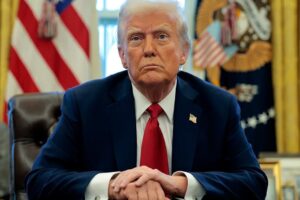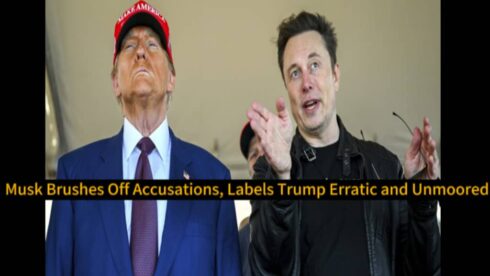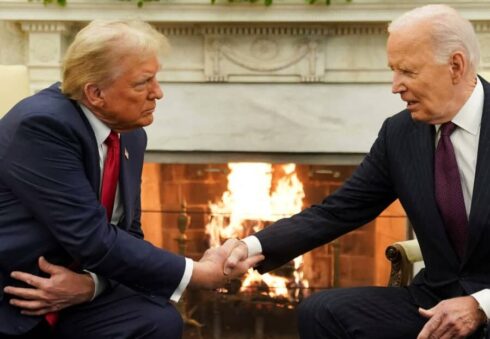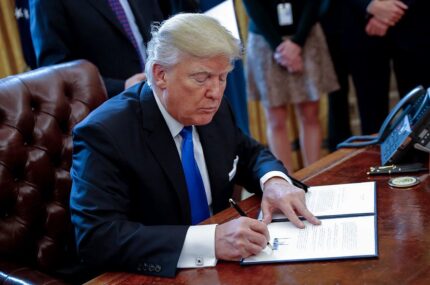Bruce Springsteen, the legendary American rock icon, launched his European tour with an explosive political statement that sent ripples through the global media. Standing under the spotlight at his opening concert in Barcelona, Springsteen paused between songs to address a crowd of tens of thousands, declaring, “The America I love, the America I’ve written about that has been a beacon of hope and liberty for about 250 years is currently in the hands of a corrupt, incompetent, and treasonous administration.”
This fiery indictment, clearly aimed at former President Donald Trump and his political allies, triggered immediate reactions across political and cultural spheres. While many in the audience erupted into applause, conservative commentators and pro-Trump factions online condemned the remarks as divisive and disrespectful. Springsteen’s speech marks a sharp escalation in his long-standing critique of Trump-era politics, intensifying the rift between progressive artistry and right-wing populism.
Bruce Springsteen’s Political Roots Run Deep
Bruce Springsteen has never shied away from political discourse, having long positioned himself as a voice for the working class and a critic of inequality. His discography, spanning over five decades, is laced with themes of American struggle, resilience, and hope—an idealistic image now, according to him, under siege by what he views as a dangerous political faction.
During the Barcelona performance, Springsteen linked his critique of the Trump administration to the broader erosion of democratic values. “It’s not about left or right,” he said. “It’s about right and wrong.” This sentiment echoes his past activism, from campaigning for John Kerry in 2004 to his vocal support for Barack Obama and Joe Biden. His words on stage reinforced his role as not just a musician, but a cultural commentator engaged in the moral battle for America’s soul.
Trump Allies Lash Out in Response
Bruce Springsteen’s remarks sparked outrage from Trump loyalists, who accused the singer of exploiting his platform for partisan grandstanding. Prominent conservative figures, including Fox News hosts and Trump campaign surrogates, derided the comments as “elitist slander” from a “washed-up liberal rock star.” Hashtags like #BoycottSpringsteen began trending on X (formerly Twitter), reigniting debates about celebrity involvement in politics.
MAGA-aligned media outlets swiftly framed Springsteen’s comments as an attack on millions of Americans who support Trump, calling into question the artist’s patriotism. “Bruce Springsteen doesn’t speak for real Americans,” tweeted Republican strategist Jenna Ellis. Despite the backlash, Springsteen has remained silent post-performance, letting the music and his statement speak for itself—perhaps knowing that silence often carries a louder echo than reaction.
Fans and Fellow Artists Rally Behind The Boss
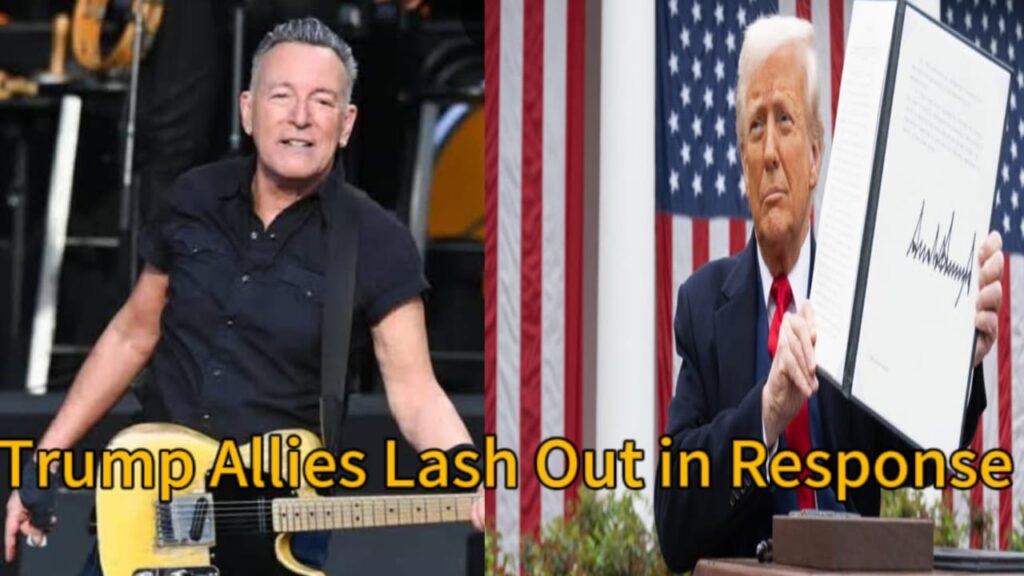
While the backlash was fierce, Bruce Springsteen’s message also galvanized his fanbase and fellow musicians, many of whom praised his courage. Grammy-winning artist Billie Eilish reposted the video with a caption reading, “Truth matters. Thank you, Bruce.” Similarly, Pearl Jam’s Eddie Vedder issued a statement calling Springsteen’s remarks “an act of musical patriotism.”
Within hours of the concert, social media was flooded with videos of the moment, fan tributes, and support from artists, activists, and scholars. For many, Springsteen’s stance is a continuation of his legacy of cultural resistance. His boldness reignited conversations around the role of artists as moral leaders in times of national crisis—pushing many to reconsider the fine line between entertainment and political responsibility.
International Audience Reacts to America’s Inner Turmoil
The European audience, many of whom have watched the unraveling of American politics from afar, responded with intense curiosity and concern. Attendees from Spain, Germany, and the Netherlands were interviewed post-concert, with many expressing admiration for Springsteen’s honesty. “He’s telling the truth Americans are afraid to admit,” said Marta Alvarez, a longtime fan from Madrid. “It takes bravery to criticize your own country like that.”
European media outlets quickly picked up the story, analyzing Springsteen’s critique within the context of America’s global image. French daily Le Monde ran the headline: “Bruce Springsteen Strikes Back at American Decline”, while Germany’s Der Spiegel described it as a “musical indictment of American authoritarianism.” In an age where cultural influence crosses borders instantly, Springsteen’s message underscored that America’s democratic backsliding is a global concern, not just a domestic dispute.
The Lingering Question—Can Music Still Drive Political Change?
Bruce Springsteen’s defiant words may have rekindled a pivotal debate: does music still have the power to shape political outcomes? Critics argue that in an age dominated by social media algorithms and polarized news ecosystems, celebrity activism is often dismissed as noise. However, history tells a different story—from Dylan to Marley, music has long been the catalyst for change, revolution, and reflection.
As the European leg of Springsteen’s tour continues, the reverberations of his opening statement are likely to grow louder. Whether his message sparks meaningful dialogue or fuels further division remains to be seen. What’s clear is this: The Boss has declared his position, unapologetically, in front of the world. And in doing so, he’s reminded both fans and critics that silence, in the face of what one perceives as treason, is not an option—not in his America.






